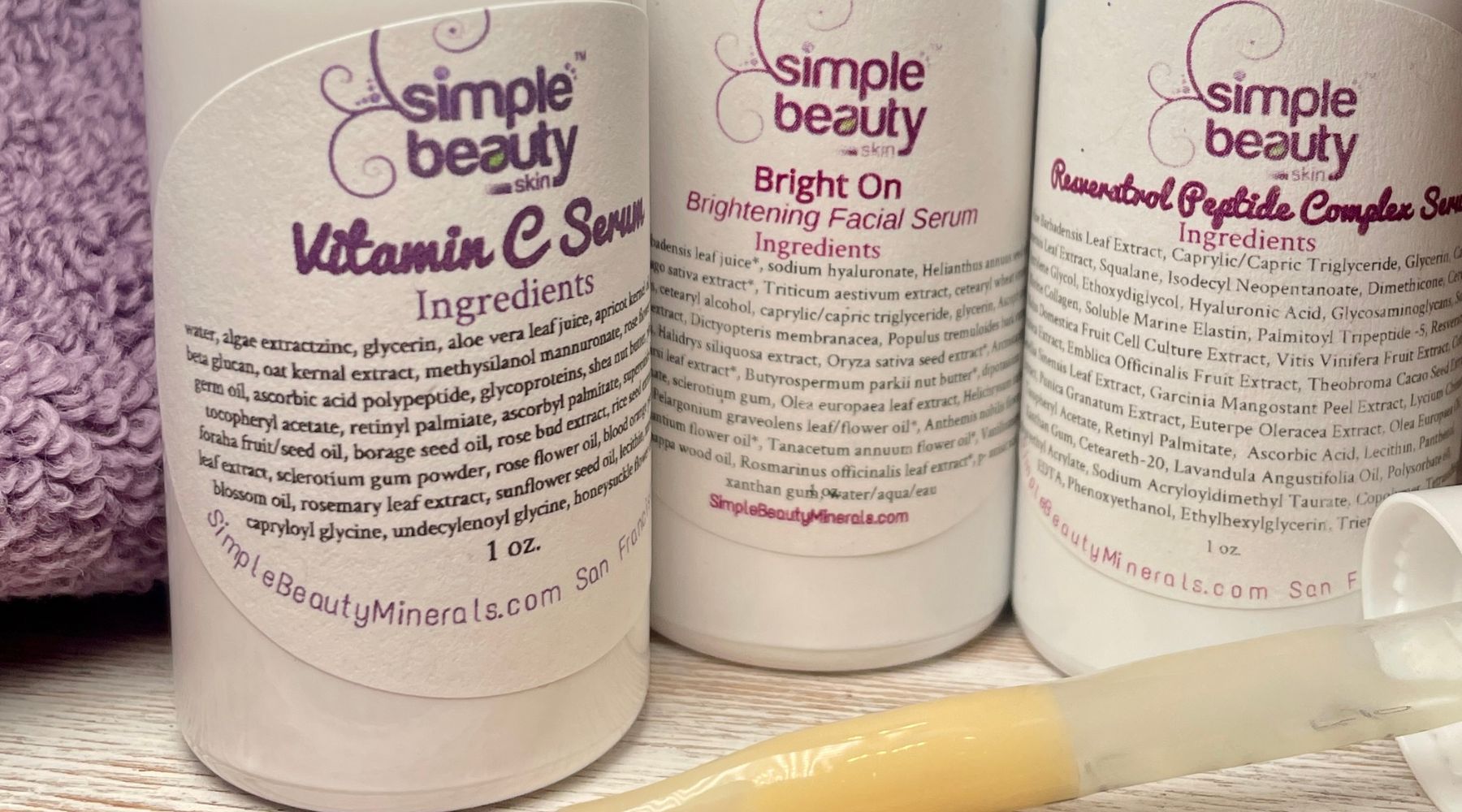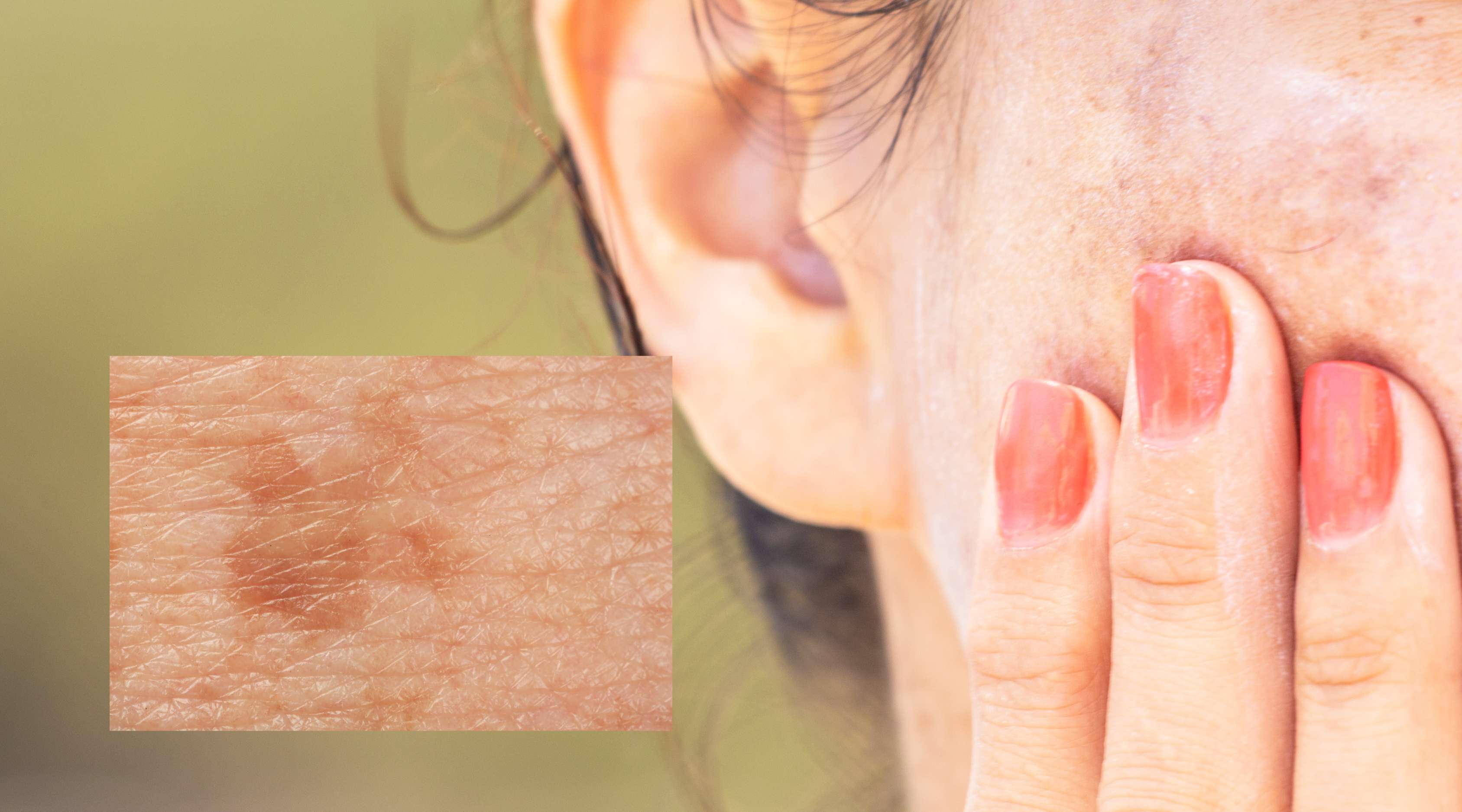Safe Sunscreen Protection

Since the sun's rays are responsible for up to 90% of the external signs of aging on our face and body, and sunscreen is your main defense, it serves you well to understand the difference between your sunscreen options.
Let's review the difference between a mineral sunscreen and a chemical sunscreen.

Mineral (Physical) Sunscreens
There are only two active mineral ingredients:
- Zinc Oxide
- Titanium Dioxide
The FDA considers these 2 active mineral ingredients as GRASE (Generally Regarded As Safe & Effective).
Pros:
- Immediate Protection: Starts protecting as soon as it's applied.
- Broad-Spectrum Protection: Effectively protects against both UVA and UVB rays.
- Provides blue light protection.
- Less Irritating: Generally less likely to cause skin irritation, making it suitable for sensitive skin.
- Stable: Less likely to break down in sunlight compared to some chemical sunscreens.
- Classified as GRASE (Generally Regarded As Safe & Effective).
Cons:
- White Cast: Can leave a white or ashy residue on the skin, particularly in people with darker skin tones. (Although the newer formulas are becoming more and more elegant in nature).
- Thicker Texture: Can feel heavier and more difficult to rub in. (see above)
How it Works
Mineral sunscreens are a physical barrier - they begin working upon application; much like putting on your coat for immediate warmth. Physical sunblock sits on top of the skin and reflects the sun's rays.

Chemical Sunscreen
There are multiple 'chemical' sunscreen ingredients (and many more outside of the U.S.)
Active Ingredients:
- Avobenzone
- Octinoxate
- Oxybenzone
- Homosalate
- Octocrylene
- Octisalate
-
chemical active sunscreen Ingredients not frequently used in the U.S.: Cinoxate, dioxybenzone, meradimate, padimate O, sulisobenzone.
*The FDA is calling for more safety data on chemical sunscreen actives before determining whether these ingredients can be classified as GRASE (Generally Regarded As Safe & Effective).
Pros:
- Lightweight and easy to apply.
- Broad spectrum protection.
- Cosmetically elegant.
- No white cast, absorbed more fully
Cons:
- Delayed Protection: Needs to be applied 15-30 minutes before sun exposure to be safe and effective.
- Potential Irritation: More likely to cause skin irritation or allergic reactions, particularly in sensitive skin.
- Stability: Some ingredients can break down in sunlight and may require frequent reapplication.
- Environmental Impact: Certain chemical ingredients (like oxybenzone) have been found to harm coral reefs and marine life.
How It Works
Chemical sunscreens function by penetrating the skin and absorbing UV rays, converting them into heat, and then releasing the heat from the skin, thereby preventing the UV rays from causing damage.

Especially if you have reactive skin; Mineral sunscreens are your friend.
Note: All our mineral makeup contains the two mineral sunscreen agents by default: Zinc Oxide and Titanium Dioxide, giving you an extra bonus layer of protection.
Take Away
Mineral based makeup is fantastic for sensitive and reactive skins.

A shot glass full (about 6 teaspoons) for your full body
How To Apply Sunscreen For Optimal Aging
Sunscreen effectiveness is dose dependent.
If you don't apply the proper amount, you are not getting the amount of protection you think you are.
1/4 teaspoon or a dollop the size of a quarter for face and neck.
SPF 30, nothing less.
No skimping now!
Another dollop, the same size for chest, hands and arms.
Makeup & Sunscreen
The sunscreen formula you wear can make or break your makeup application, and dictate which products work well, ...or not.
The wrong sunscreen can create shorter makeup wear time, sit on top of you skin instead of melting in, and settle into lines.
Experiment To Find Your Favorites.
Remember...
The correct use of sunscreen can keep your skin younger for longer, and safe from skin cancer.
And knowledge is powerful.
Watch the Tutorial on YouTube (Be Sure To Subscribe!)
SHOP THIS POST
| TiZO AM Replenish | TiZO Primer Sunscreen | TiZO Ultra Zinc |
 |
 |
|
| TiZO Mineral Sun Defense | TiZO Mineral Stick SPF 45 |
JOIN OUR COMMUNITY
Join the SBM Customer Care community on Facebook, a group of friendly customers who are there to learn about the brand, clean beauty and easy well-aging beauty. Click here to request to join!
SHOP MY CURATED FAVES
Our Amazon Shop for tried and true highly recommended products: SBM AMAZON SHOP
SUBSCRIBE TO THE PODCAST
Beauty and Style podcast for woman over 50: LIVING VISIBLY OVER 50 PODCAST
**DISCLOSURE: Hey beautiful! I may be an affiliate for some of the products that I recommend on the Simple Beauty Blog. If you purchase those items through my links, I will earn a small commission. You will NEVER pay more when buying a product through my link. Plus, when you order through my link, it helps support the Simple Beauty Blog, so I can continue to offer you lots of great free information.






